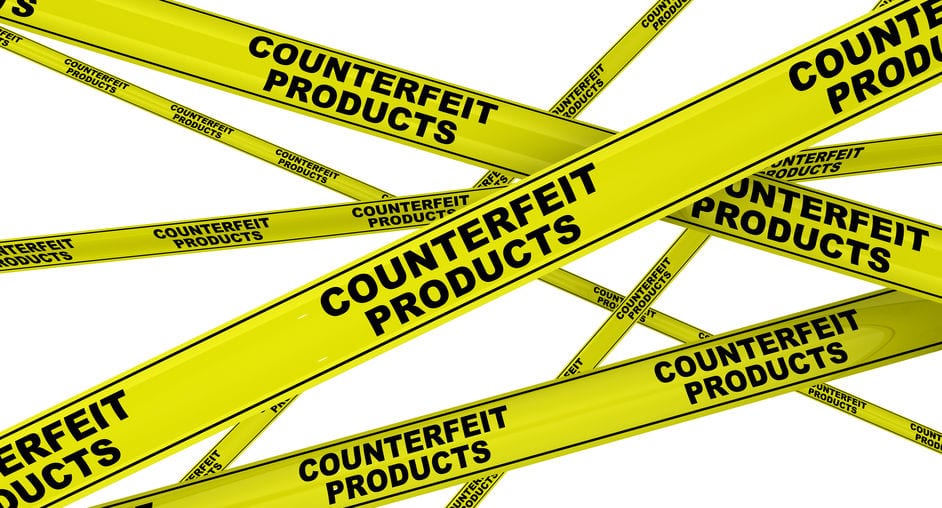Mallory King - February 7, 2020 - Protecting Your Trademark from Infringement, Trademark Law

Preventing your trademark from being counterfeited should be of upmost importance to brand owners. Goods such as knock-off Louis Vuitton handbags, fake Rolex watches, imitation Cognac, and everything in between have been subjected to counterfeiting tactics over the years. Brand owners can protect themselves by enforcing their rights through trademark law.
Under the Lanham Act, a “counterfeit mark” is defined as “a counterfeit of a mark that is registered on the principal register in the United States Patent and Trademark Office for such goods or services sold, offered for sale, or distributed and that is in use, whether or not the person against whom relief is sought knew such mark was so registered.” In short, you need a registered trademark (on the principal register) in order for your mark to be counterfeited.
Trademark Counterfeiting is a type of trademark infringement. Use of a counterfeit trademark involves “intentionally using a mark or designation, knowing such mark or designation is a counterfeit mark, in connection with the sale, offering for sale, or distribution of goods or services.” (15 USC 1117).
Yes! In cases involving counterfeit marks, courts will (unless they find extenuating circumstances) order treble damages against a defendant. “Treble damages” mean three times the profits collected by the infringer or damages sustained by the brand owner – whatever amount is greater. Plus, as a trademark counterfeit plaintiff, you are also entitled to receive reasonable attorneys’ fees related to the cost of your representation in bringing a lawsuit. Altogether, the damages available in trademark counterfeiting cases can be quite large.
There are several tools available for companies to utilize so that they can be proactive in spotting trademark counterfeits. Some “self help” services include Amazon Brand Registry and eBay’s VeRO Program. Professional services, such as Trademark Monitoring through Traverse Legal, are also available to help catch counterfeiting before it goes too far. If you are concerned about policing potential counterfeits of your trademark, investing in one or more of these programs can help.
If you have reason to believe that your trademark is being counterfeited on a good that was not manufactured by your company, you should immediately contact the brand protection lawyers at Traverse Legal, PLC. We regularly handle trademark infringement cases of all types, including those dealing with counterfeit marks. Let Traverse Legal assess your legal leverage and provide you with the best path forward to enforce the trademark infringement and counterfeiting that is occurring.